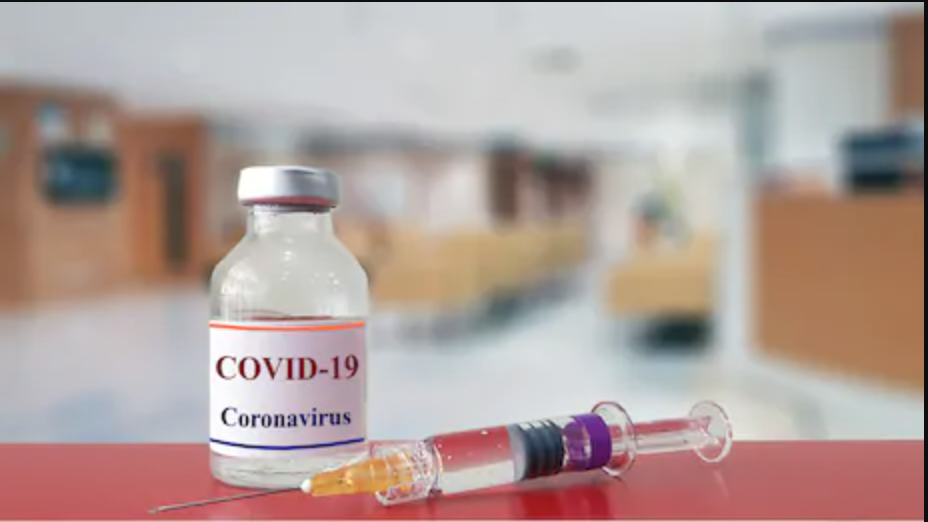As the pandemic rages on and the public is inundated once again with the startling news of rising COVID-19 case numbers, it seems people now have the opportunity to look to something hopeful. China, Russia, and the United Kingdom have been progressing rapidly in the evolution of a vaccine.
It would appear that China, the country where the virus originated, is determined to steer away from any negative narratives surrounding their handling of the pandemic. Xiamen University, Hong Kong University as well as the Beijing Wantai Biological Pharmacy all received approval this past week to begin phase one human trials of an intranasal spray vaccine.
The spray is made up of weakened virus segments of spike protein and when administered, the body stimulates the immune response it would normally have for a respiratory virus. This time it’s against the pathogen that causes COVID-19, reported Science and Technology Daily—a paper affiliated with China’s Ministry of Science and Technology.
Scientists are hopeful that spraying the vaccine nasally will be more effective than a needle injection, as they hypothesize that the latter may not produce an immune response strong enough to thwart the infection.
AstraZeneca, who is working with Oxford University, has pledged to manufacture two billion doses of the COVID-19 vaccine once developed.
Russia, one of China’s main competitors in the race to finding a vaccine, moved ahead and published its first results from early trials with its Sputnik V vaccine. The results of these trials are facing much scrutiny from experts, as it appears that the sample size consisted of only 40 people surveyed over the course of 42 days with no control or placebo vaccine in place.
Alexander Ginstburg, director of the Gamaleya Institute in Moscow where the vaccine was developed, touts that the vaccine produces a sufficient immune response in someone with COVID-19 and that the vaccine effects remain detectable for two years or more. However, none of these claims can be backed by evidence at this time.
Russia’s vaccine appears to use the same technology as China’s in its approach to the virus’s spike proteins while also triggering a response from the body’s T cells, which destroy other cells that have been infected by the virus. Thus far, reported side effects of the vaccine have been fever, headache, and joint pain.
Of all potential vaccine frontrunners, it is AstraZeneca, the Western attempt as well as the World Health Organization’s (WHO) frontrunner, that has faced the biggest setback thus far—though it is worth noting they have conducted far more testing than their international counterparts.
As trials progressed, the study vaccine was administered to 18,000 patients, resulting in one of the women involved in the study developing “severe neurological symptoms,” requiring the British-Swedish pharmaceutical giant to temporarily halt testing. As serious as this may sound, Dr. Soumya Swaminathan of the WHO urges the public not to be overly discouraged, citing instances like this as a reality of the ups and downs of testing on such a large scale.
“I remain cautiously optimistic about vaccine trial progress but hope in the interim, we as a local and global community, can maintain our vigilance and efforts that have made an impact so far,” says Anju Vyas, pharmacist in the Department of Complex Malignant Hematology at North York’s Sunnybrook Health Sciences Centre.
AstraZeneca, who is working with Oxford University in the development of its inoculation, has pledged to manufacture two billion doses of the COVID-19 vaccine once developed. From its initial testing phases in July, the drug manufacturer also reported that 91 per cent of its 1,077 participants saw a neutralization of the virus after one dose, and 100 per cent seeing this neutralization after the second dose.
As great as it is to see progress being made towards ending COVID-19, it is important to keep our expectations tempered. These attempts will take time to reach fruition and likely will be met with obstacles along the way.
“I remain cautiously optimistic about vaccine trial progress but hope in the interim, we as a local and global community, can maintain our vigilance and efforts that have made an impact so far,” says Anju Vyas, a pharmacist in the Department of Complex Malignant Hematology at North York’s Sunnybrook Health Sciences Centre.
“Vaccine trials in China and Russia have reported promising results, which is encouraging to hear. However, with the lack of information published in regards to the depth of research being conducted, it is difficult to comment on the quality of the trials being performed. During these times, it can be easy to get lost in the desire for a vaccine to be produced as quickly as possible,” says Diljit Gill, a second-year student at the DeGroote School of Medicine.
“In the meantime while we wait, it’s important to continue following the health guidelines set by our governing bodies. It’s becoming increasingly important to continue practicing social distancing, hand hygiene, wearing facial protection, and other protective measures encouraged by our health care providers,” adds Gill.




